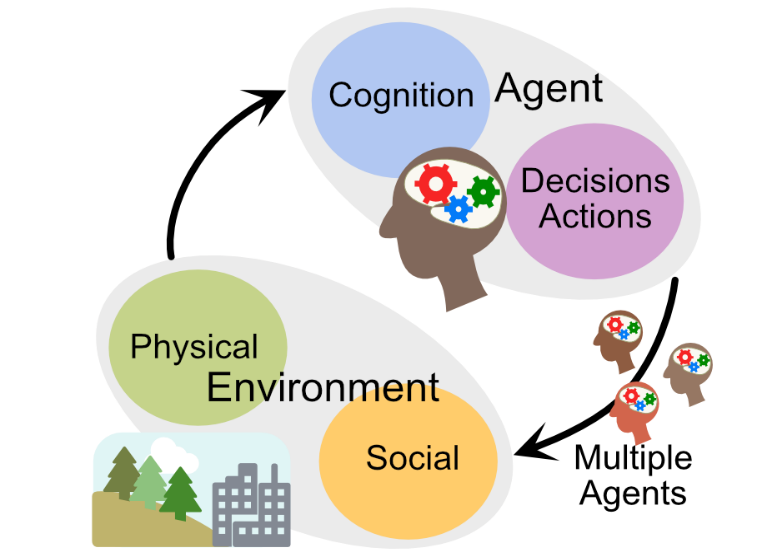
Research Projects

How do cognitive processes shape collective behavior in complex social-ecological systems?
Social-ecological systems are systems in which agents interact with each other and their environment. In such systems, the environment shapes the agents’ experience and actions, and in turn collective action of agents changes social and physical aspects of the environment. We are interested in the way cognitive abilities interact with environmental affordances, to shape collective behaviors such as social norms, social structure, institutions and culture.
Current research in the lab follows one of the main topics below. However, we also collaborate on many other topics and projects, such as information sharing, advice giving, decision making and moral psychology. Check out the publication page for more information.
Social Norms
TSocial norms prescribe behaviors that most group members follow, most of the time. Some behaviors easier to track and detect than others, which have implications on norms emergence and resilience. For example, active behaviors are easier to detect than omissions. We use multiplayer video games and computational modeling to study these processes, and the way environmental affordances shape the emergence of norms.
Relevant papers:
Human-AI interaction
As AI agents become more prevalent, they become a part of our social landscape, giving advice, sharing information and demonstrating normative behaviors. We examine how humans' social expectations, shaped by interacting with humans, extend to AI agents, and how this shape cooperation and interactions between humans and AI agents. We are also interested in the way we could design AI systems to facilitate cooperation and interactions with humans.
Relevant papers:
Cognitive Archeology
Cognitive evolution is conceptualized as comprising the asynchronous development of distinct cognitive systems, highlighting the importance of reconstructing the evolutionary history of each of these components. We aim to characterize this evolutionary process by examining the archeological evidence. We study the way habitation and movement style, such as cave dwelling, shaped social cognition and social structure, and the how complex problem solving abilities are reflected in complex stone tools. We use lab experiments, computational simulations and archeological measurements to characterize these processes.
Relevant papers: soon...
Computational Psychiatry
In recent years lab-based experimental tasks, designed to track specific cognitive abilities, and computational cognitive models that aim to capture individual behavior, are used to provide mechanistic understanding of the basis of variety of psychiatric disorders, and individual differences in subclinical populations. We design experimental tasks and fit computational models, mostly in the field of reinforcement learning, and collaborate with researchers to examine how they capture different aspects of disorders. We used our tasks to examine aspects of social anxiety, learning disabilities, schizophrenia and depression.
Relevant papers: